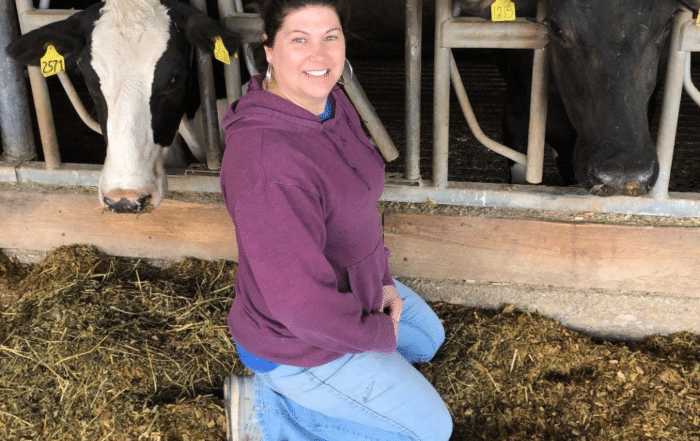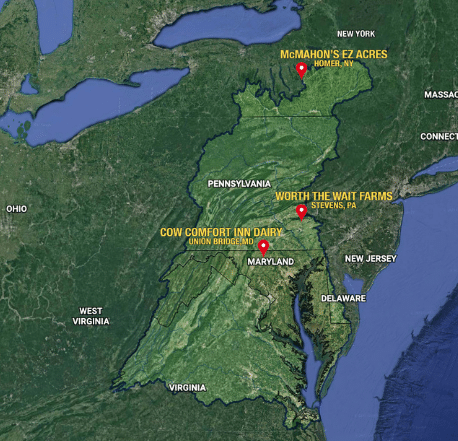The U.S. dairy industry is responsible for less than 2 percent of total greenhouse gas emissions in the country. U.S. dairy, per gallon, has the lowest carbon footprint of any country in the world.
Sustainable Dairy Farming Practices
Dairy farmers are working hard to further reduce their carbon footprint and the impact milk production has on the environment. Farmers have long worked on reducing the carbon footprint of a glass of milk. In fact, from 2007 to 2017, it was reduced by 19 percent.
But dairy farmers are not done yet. The U.S. dairy industry has committed to the ambitious goal of greenhouse gas neutrality by 2050. Shrinking dairy industry’s carbon footprint is a big goal – but farmers are up for the challenge.
Sustainable Dairy Farming Technology
The entire U.S. dairy industry, with the support of the Innovation Center for U.S. Dairy, will work toward net zero in the coming years by leveraging technology, best practices and ensuring that innovations are accessible and affordable for farmers and companies.
The entire dairy supply chain will be working together to achieve net zero. Check out our tips for what you can achieve in reducing food waste at home.



